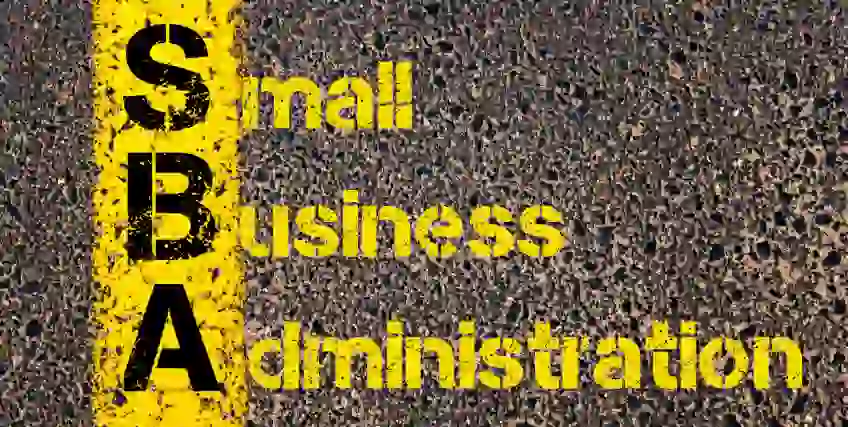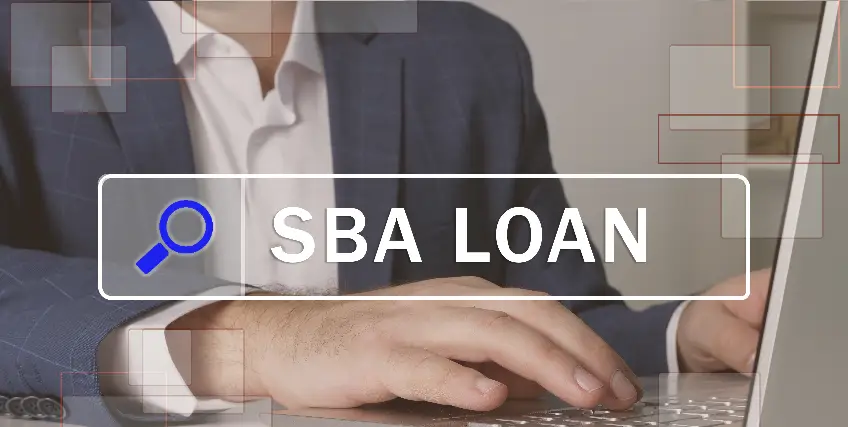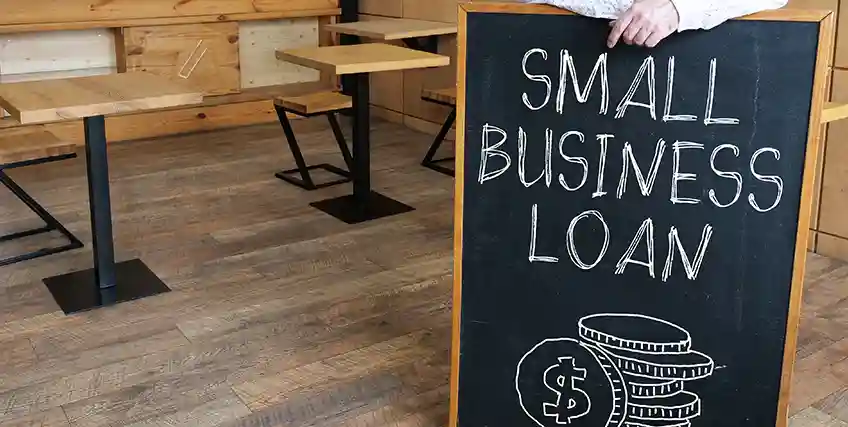
SBA line of credit is considered to be one of the best small business loan, when you are in need of short-term working capital. It also helps during times of seasonal fluctuations or when overcoming a temporary cash flow shortage.
Similar to traditional SBA loans, the SBA line of credit is offered by participating lenders such as credit unions and banks. These loans are also partially guaranteed by the U.S. Small Business Administration.
In this article, you will learn about the SBA Line of Credit and its types, along with how they work.
Understanding the SBA line of credit
An SBA line of credit is a tangible form of short-term financing that helps provide a reservoir of money that you can draw when you need it. You would only have to pay interest on the loan amount that you have borrowed, unlike the usual SBA loans. A normal SBA loan will only provide you with a lump sum, which you can pay back during the defined time period.
SBA line of credit is available in different parts of the 7(a) loan program, and you can not apply for a line of credit through the 504 or microloan programs.
Types of SBA lines of credit
There are multiple loan options that are covered under the 7(a) loan program. Below are some of the SBA line of credit that fall under that category.
SBA CAPLines
SBA CAPLines of credit are designed for specific short-term and working capital requirements that are cyclical. They can be either fixed or revolving, depending on the type of credit line and your usage plan.
The SBA line of credit is available for up to $5 million. It also guarantees 85% for loans of up to $150,000 and 75% for loans exceeding $150,000.
There are four options for SBA CAPLines:
- Seasonal CAPLines: This SBA line of credit can help with cash flow to small business owners who face the issue of generating revenue seasonally. This line of credit helps in using funds to cover the increased labor cost, along with other expenses that your business has to deal with.
- Builders CAPLines: This SBA line of credit is available to builders and small general contractors for constructing and rehabilitating residential or commercial properties. Funds can be used for utility connections, on-site work, and landscaping.
- Working CAPLines: This SBA line of credit can help in providing working capital for financing various short-term expenses. Since the availability of credit for this option is based on your existing assets, lenders should continuously monitor your collateral and can charge you additional fees.
- Contract CAPLines: This SBA line of credit is eligible for small businesses that require funding for executing their work contracts. Funds can cover a range of expenses, including supplies, labor, materials, and more.
SBA Express line of credit
SBA Express lenders, however, have the authority to approve, process, and close applications without the SBA’s review.
However, SBA Express lenders have the authority for approving the process and close the application without any SBA review.
SBA Export lines of credit
The SBA Export Express and Export Working Capital programs offer flexible SBA business line of credit specifically designed for businesses seeking to expand or support their export activities.
The SBA Export Express line of credit offers funding up to $500,000, with a maximum guarantee of 90% for loans of $350,000 or less, and 75% for amounts exceeding $350,000.
Meanwhile, the Export Working Capital program provides borrowers access to larger lines of credit, up to $5 million, with a maximum guarantee of 90%. These programs are ideal for borrowers seeking reliable capital to expand their international sales and operations.
SBA Working Capital Pilot (WCP) lines of credit
The SBA working capital pilot program is an SBA line of credit that is designed to provide working capital to a vast variety of small businesses. This program provides transaction and asset-based credit lines.
This SBA line of credit is available for amounts up to $5 million, with a maximum guarantee of 85% for loans of up to $150,000 and 75% for loans exceeding $150,000.
It is not like other SBA line of credit, which only provides a unique fee structure. You only have to pay a short-term fee annually, and the lender will charge a proportional amount of this fee every year till the time your credit line is in use. As a result, you will be paying short-term costs for one year instead of long-term maturity.
SBA line of credit rates
All SBA Line of Credit options fall under the SBA 7(a) loan program, so their interest rates generally match those of SBA 7(a) loans, except for the SBA Export Working Capital lines of credit.
Interest rates for SBA Lines of Credit are based on the prime rate plus a negotiated spread between the borrower and the lender. Rates can be either fixed or variable, but must remain within the SBA's maximum limits, which depend on the size of the credit line.
For Export Working Capital lines of credit, the SBA does not set specific interest rate guidelines. Instead, rates vary by lender but are monitored by the SBA to ensure they remain reasonable.
SBA line of credit requirements
If you want to qualify for an SBA line of credit, you would have to meet certain SBA loan standards, along with your loan-specific criteria. These qualifications are set by your lender as per the loan program.
Most of the SBA lenders have a requirement of good credit, which is usually 690 or above. They will also ask you to have strong finances, so that you can qualify for these credit lines. However, some of these loan programs only require a 12-month operational history, whereas lenders generally prefer to see a business established for at least two years.
There are chances that you would have to provide collateral as well to get a secured SBA line of credit.
How to apply for an SBA line of credit
To obtain an SBA Line of Credit, start by identifying an SBA-approved lender that offers a specific product suited to your business needs. Consider reaching out to banks or credit unions where you already have a relationship, as their familiarity with your business can make the approval process smoother.
You can also use the SBA’s Lender Match tool. By providing details about your business and working capital needs, Lender Match connects you with potential lenders within two days who may be a good fit. Once you select a lender, you will collaborate to complete and submit your SBA loan application.
This includes providing SBA-required forms, financial statements, and other relevant business documents. Approval times for an SBA Line of Credit typically range from 30 to 90 days. However, SBA Preferred and Express lenders can often expedite funding since they have the authority to process and close loans without waiting for SBA approval.
Keep in mind that your credit score and overall creditworthiness play a significant role in the approval decision, so maintaining strong financials will improve your chances.
Related Article: How Rising Interest Rates Will Impact SBA Loans
Conclusion
The SBA line of credit is a valuable financing solution for small businesses needing flexible access to working capital. Whether you're dealing with seasonal fluctuations or a temporary cash flow gap, this option offers tailored support with lower interest rates and no substantial down payment.
With a variety of programs, including SBA CAPLines, Export lines, and Express loans, you can choose the best fit based on your business needs. Fast-tracked options like SBA Express loans simplify approval and funding, making them ideal for urgent needs. By maintaining strong credit and financials, you can enhance your chances of securing the right SBA line of credit.
FAQs for SBA line of Credit
What is an SBA line of credit?
An SBA line of credit is known to be a flexible financing option for small businesses that are backed up by the U.S. Small Business Administration (SBA). This allows the small businesses to borrow funds as per their requirement, up to a specific limit, and make repayment over time. It is just like a credit card but comes with more favorable terms and low interest rates.
What is the downside to an SBA loan?
The downside to an SBA loan is that lenders will ask you to sign a personal guarantee if you have 20% or more equity in your business. If you are not able to make the payments at the right time as per the agreed-upon terms, you would have to pay back the lenders from your personal savings or assets.
What credit score do you need for an SBA loan?
The credit requirements for SBA loans generally vary by type of loan and lender, but a good personal credit score, like 640 or more, with some lenders requiring 680+ scores, and a strong credit score (SBSS score of 155+) are needed for most SBA loans. A few of the microlenders are more flexible with lower scores. Apart from credit, businesses need to demonstrate financial stability, you must have a viable business plan, and be in an industry and size that is eligible.
Do SBA loans have to be paid back?
Just like conventional loans, SBA loans need to be paid back with interest. Paying back an SBA loan involves making regular payments, typically monthly, to the lender.
Why would someone get an SBA loan?
SBA’s primary business loan program, like the SBA 7(a) loan program, provides loan guarantees to the lenders, which allow them to provide financial help for small businesses with special requirements. For acquiring, refinancing, or improving real estate and buildings, 7(a) loans can be used, and they also have short and long-term working capital.
Frequent searches leading to this page
Related Articles
Term Loans are made by Itria Ventures LLC or Cross River Bank, Member FDIC. This is not a deposit product. California residents: Itria Ventures LLC is licensed by the Department of Financial Protection and Innovation. Loans are made or arranged pursuant to California Financing Law License # 60DBO-35839




